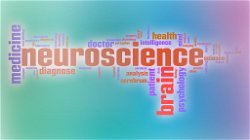The Science of Happiness: Exploring Factors and Cultivating a Happier Life
Poonam Junjunwala
. 2 min read
Happiness is a fundamental human desire, an emotion we all strive to experience in our lives. Over the years, researchers from various disciplines, including developers, have sought to understand the elusive nature of happiness. Through their studies, they have shed light on the factors that contribute to happiness and how individuals can actively cultivate a happier life. In this article, we delve into the science of happiness, exploring the key factors that influence our well-being and practical steps to enhance our overall happiness.

Exploring the Key Factors that Influence Our Well-Being
The Pursuit of Happiness
The pursuit of happiness has been a philosophical and psychological endeavor for centuries. However, in recent decades, scientific research has provided valuable insights into what makes us happy. According to studies in positive psychology, genetics and life circumstances account for only a portion of our happiness, leaving a significant space for intentional actions and mindset changes.
The Role of Positive Emotions
Positive emotions play a crucial role in our happiness. They include joy, gratitude, contentment, love, and awe. Experiencing these emotions has a direct impact on our well-being, fostering resilience and improving our ability to cope with life's challenges. Practicing mindfulness and being present in the moment can help individuals savor positive experiences and increase their overall happiness.
Building Meaningful Relationships
Human beings are social creatures, and the quality of our relationships has a profound influence on our happiness. Positive social interactions and strong social connections contribute to our emotional well-being. Cultivating meaningful relationships with friends, family, and colleagues helps create a support system that adds to our sense of belonging and happiness.
The Pursuit of Flow
Psychologist Mihály Csíkszentmihályi introduced the concept of "flow," the state of complete absorption and focus in an activity. When engaged in activities that challenge our skills and provide a sense of accomplishment, we enter a flow state that promotes happiness and enhances productivity. Pursuing activities that align with our interests and passions can lead to more frequent experiences of flow.
Gratitude and Acts of Kindness
Practicing gratitude and performing acts of kindness have shown to be powerful happiness boosters. Regularly expressing gratitude for the positive aspects of life and showing kindness to others create a positive feedback loop, leading to increased levels of happiness and life satisfaction.
The Impact of Physical Well-Being
Physical well-being is intrinsically connected to our happiness. Regular exercise, a balanced diet, and sufficient rest play significant roles in maintaining emotional stability and promoting positive moods. Engaging in physical activities releases endorphins, which act as natural mood enhancers.
The Pursuit of Personal Growth
Setting and achieving meaningful goals contribute to a sense of purpose and fulfillment. The pursuit of personal growth, whether through learning new skills, pursuing hobbies, or seeking new experiences, can positively impact our happiness.
Mindfulness and Meditation
Practicing mindfulness and meditation has gained popularity as effective tools for cultivating happiness. Mindfulness helps individuals become more aware of their thoughts and emotions, enabling them to respond to life's challenges with greater equanimity and resilience.
Conclusion
The science of happiness reveals that happiness is not solely dependent on external circumstances or genetic predispositions. Rather, it is within our reach to actively enhance our well-being and lead happier lives. By nurturing positive emotions, building meaningful relationships, engaging in activities that bring us joy, and taking care of our physical and mental health, we can foster a happier and more fulfilling life. Embracing the principles of positive psychology and incorporating them into our daily lives empowers us to find happiness amidst life's complexities. So, let us embark on this journey towards greater happiness, one step at a time.
More Stories from
The Mysteries of the Brain: Recent Discoveries in Neuroscience
From the brain's remarkable adaptability to the profound link between the gut and brain, explore the cutting-edge findings shaping our understanding of cognition and behavior.
Cracking the Code of Jewelry Authenticity
This article provides easy methods to determine the authenticity of jewelry, including tips for checking metals.
Understanding AC and DC: The Fundamentals of Electric Power
This article provides a concise overview of Alternating Current (AC) and Direct Current (DC), the two fundamental types of electrical power.
Defense Advanced Research Projects Agency (DARPA): Pioneering Innovation in Defense Technology
This article provides a concise overview of the Defense Advanced Research Projects Agency (DARPA), its mission, and its key contributions to revolutionizing defense technology.
A Look into the Ethical Dilemmas of Biotechnology and Genetic Engineering
This article delves into the ethical dilemmas arising from biotechnology and genetic engineering. It explores the complex issues surrounding genetic editing, GMOs, gene patenting, informed consent, and reproductive technologies.






.png?width=40&aspect_ratio=1:1)

.png?width=40&aspect_ratio=1:1)




